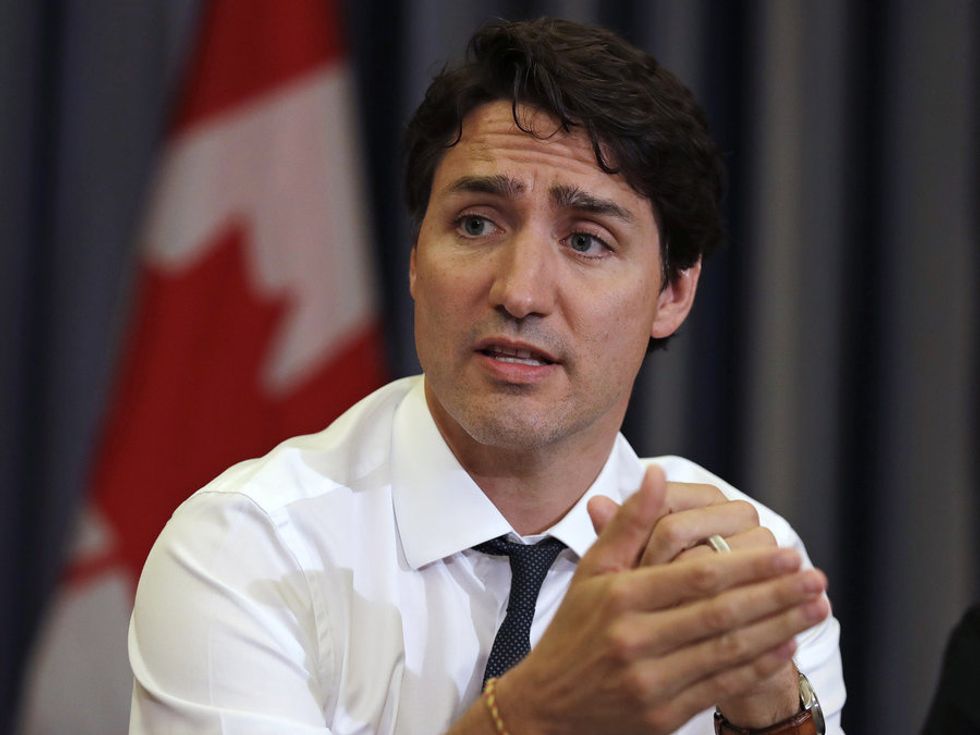Canada Just Legalized Recreational Cannabis Use
A few weeks ago, Canada became only the second country in the world to legalize recreational marijuana use. Bill C-45 or the Cannabis Act was first drawn up in April of 2017, passing in Canada’s House of Commons last November. It finally passed in the Senate on June 20th in a landslide vote of 52-29. According to Prime Minister Justin Trudeau, the primary motivation behind bill is to keep marijuana away from underaged users and to help reduce the amount of drug-related arrests. The idea is that if the government is able to regulate and tax the marijuana industry, it’ll be harder for teenagers to get their hands on pot. If legalization as a method of prohibition seems counterintuitive, just ask an American high schooler if it’s easier to get weed or booze. Trudeau has also been outspoken about organized crime and its relation to illicit marijuana sales, tweeting “It’s been too easy for our kids to get marijuana – and for criminals to reap the profits.” Still, the benefits to this bill have been obvious to the pro-legalization movement for decades. The real question is how the thing actually works.
According to CNN, the bill will allow adults to carry up to 30 grams of legal marijuana in public. It will also be legal for adults to keep and cultivate up to four plants in their house. There are certain restrictions however. For example, marijuana cannot be purchased in a store that also sells tobacco or alcohol products. In fact, marijuana can’t legally be purchase outside of very specific, licensed businesses. The legal age limit for marijuana consumption will vary by province, but the federal limit will be set at 18 years years of age, consistent with the bill’s goal of keeping marijuana out of the hands of minors.
 Justin Trudeau
Justin Trudeau
On the surface, the bill will do exactly as it’s designed, but it’s a rare thing in politics that a law is passed without some sort of financial lubrication. The budding $4 billion dollar Canadian weed industry certainly provided politicians with an alternative, if not more convincing incentive. Still, whether the real reason for passing this bill was to protect children or to make money isn’t that important when one considers the end result. Canada, in making marijuana legal has made their society safer by taking the sale of the world’s most popular herb out of the hands of criminals and placing it into the hands of federally regulated businesses.
Bill C-45 isn’t only affecting the marijuana industry. Unfortunately in their infinite wisdom, the Canada government didn’t include edibles in the marijuana act, and government dispensaries will be without gummy bears, brownies, and other marijuana treats once the bill goes into effect on October 17th. This hasn’t deterred Canadian food companies from trying to get in on the action. While there won’t be a referendum on edibles until 2019, junk food companies have already started marketing their food to pot smokers. Unlike actual marijuana products, food companies are not subject to stringent advertising restrictions. The Canadian government has relatively no say in how a chocolate company markets its candy bars. This has spurned on some pretty creative ad campaigns. For example, Hershey Canada has just released the Oh Henry! 4:25, a candy bar “specially formulated for the intense hunger that hits 5 minutes after 4:20.”
For all the fun however, these new laws do come at the expense of the relatively relaxed Canada/United States border. The potential for marijuana smuggling presents, an albeit unclear, threat to both nations. It’s illegal in both the United States and Canada to transport marijuana across the border. On top of this, Canadians can be barred from entering the U.S. if they regularly smoke marijuana, despite the fact that one in eight Canadians readily admits to toking up. If you’re a weed smoking Canadian, and the U.S. authorities know this, you’ll need to buy a $585 waiver in order to get into the country. If these laws seem heavy handed, it’s because they are, and an unfortunate side effect this bill will be longer wait times at the border. All things considered though, we aren’t far from federal legalization here in the states. While Canada is leading the way right now, once America sees the profitability of the newly legal Canadian marijuana industry, it’s only a matter of time before our government follows suit.
Matt Clibanoff is a writer and editor based in New York City who covers music, politics, sports and pop culture. His editorial work can also be found in Pop Dust, The Liberty Project, and All Things Go. His fiction has been published in Forth Magazine. Website: https://matthewdclibanoff.journoportfolio.com/Twitter: @mattclibanoff


